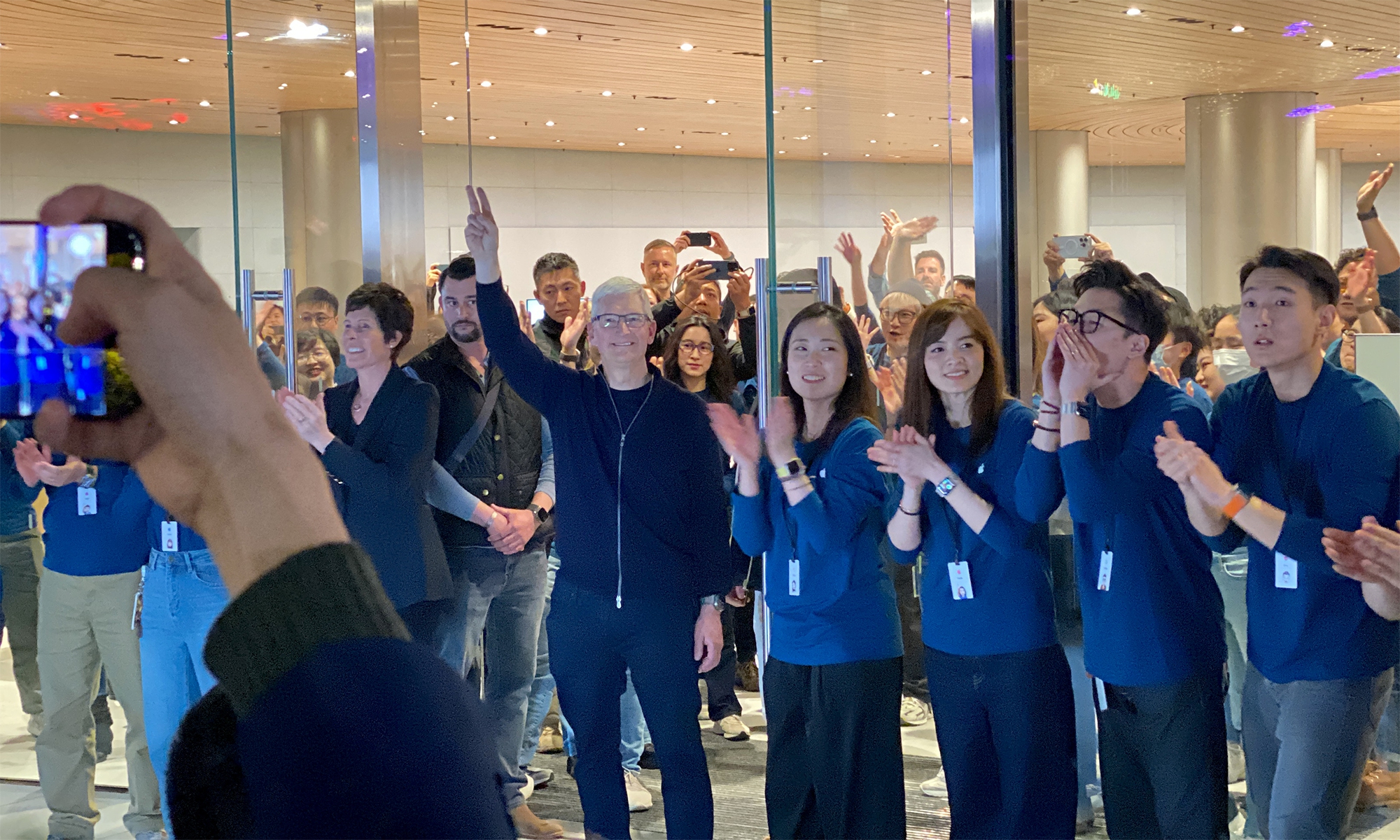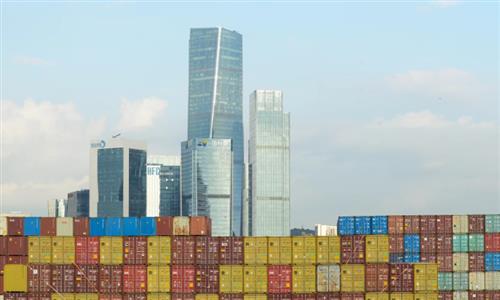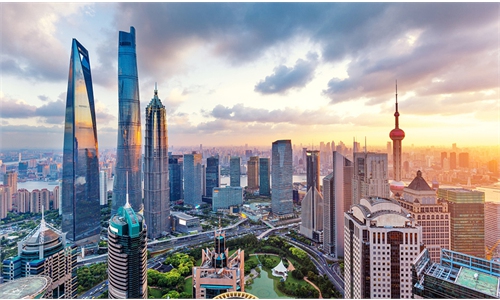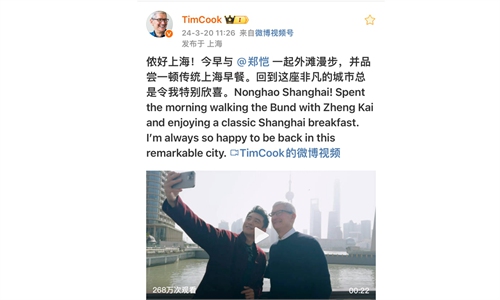
Photo: Chen Xia/GT
US technology giant Apple Inc opened a new flagship store, which is second only to its Fifth Avenue outlet in New York City among its stores worldwide, in downtown Shanghai on Thursday.
Chinese analysts said Apple Inc's new world-class store in China, along with a long list of projects with world-leading standards by foreign companies, showcased the vast opportunity of the Chinese market and foreign companies' commitment to it.
Apple CEO Tim Cook, after declaring a day earlier in interviews with Chinese media outlets that "there is no place more important than China" for the US tech giant's supply chain, showed up at the opening of the new flagship store in Shanghai on Thursday as the iPhone maker makes a deeper push into the Chinese market.
Cook walked out of the store precisely at 7 pm and waved to the waiting audience, took pictures with the first batch of customers and signed autographs.
The topic of "Apple's Cook opens new flagship store at Shanghai's Jing'an district" became a hit on Chinese social media on Thursday, attracting 10.43 million views as of press time.
A customer surnamed Yang, who had been in the queue since Wednesday evening, told the Global Times that he was thrilled to attend the opening and get a photo taken with Cook.
Ahead of the opening ceremony at 7pm, an advertising screen on the opposite building displayed ads for China's Huawei and South Korea's Samsung, signaling the intense competition in the Chinese market.
Cook is also expected to attend the China Development Forum, an annual high-level event hosted by the Development Research Center of the State Council, which is scheduled to start this weekend hosting a long list of foreign companies' CEOs.
Wang Yiwei, the director of the Institute of International Affairs at Renmin University of China, told the Global Times on Thursday that the combination of Apple Inc's "world-class" retail store and Shanghai could be seen as a test case for the vitality of the Chinese market and a positive example showing China's pursuit of a high-quality market.
Wang said that China's market is diverse and open, and friendly to global partners such as Apple and other multinational companies (MNCs), even though China's domestic smartphone industry is competitive.
China is constantly improving its detailed policies to promote high-level opening-up, and foreign companies are able to see China's positive policy direction and bright prospects, Wang noted.
The Government Work Report approved during the two sessions prioritized efforts in attracting foreign investment, including lifting all market access restrictions on foreign investment in manufacturing.
On Tuesday, the State Council issued a 24-point action plan to attract foreign investment.
Apple is among a number of MNCs that are bringing their best shopping facilities or plants to China this year.
In January, petrochemical giant Saudi Basic Industries Corp (SABIC) splashed $6.4 billion on world-class petrochemical facilities in the largest one-time foreign investment ever in East China's Fujian Province.
A total of 11 major foreign investment projects have been listed this year, under the guidance of the National Development and Reform Commission, the country's top economic planner, the Shanghai Securities Journal reported on Thursday.
These projects, with total investment of more than $15 billion, cover the fields of biopharmaceuticals, car manufacturing, new-energy batteries and chemicals.
In 2023, the proportion of foreign investment in China's high-tech industries reached 37.4 percent, an increase of 1.3 percentage points from 2022.



